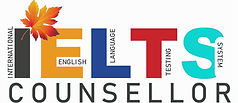



English Proficiency Tests
Achieve Top Scores in IELTS, TOEFL, PTE, Cambridge English & OET Coaching in Aligarh with Confidence, Speed, and Guaranteed Effectiveness.
IELTS Counsellor is your trusted hub for English proficiency test preparation — whether you're aiming for IELTS, TOEFL, Cambridge English Exams, PTE Academic, or TOEIC. With expert-led courses and proven strategies, we help you unlock the performance you need for University admission, immigration, or career advancement.
Why Choose IELTS Counsellor?
-
Expert Mentors & Tailored Study Plans
Precise guidance, targeted at band 7+, 8+, or 9 in IELTS, high TOEFL iBT/TOEFL iBT scores, Cambridge CEFR levels, or PTE/TOEIC grading goals, personalized to your needs. -
Comprehensive Coverage of All Four Skills
Practice modules covering Reading, Writing, Listening, and Speaking, along with regular mock tests, strategic shortcuts, and zone-based time management techniques. -
Flexible Classes & One-on-One Tutoring
Learn online or in-person, with flexible scheduling to fit your routine. -
Thousands of Success Stories
Proven results for students across India, especially from Aligarh, Uttar Pradesh, preparing for overseas studies or migration.
Your Path to English Test Success
-
Start with a Free Diagnostic Test
Evaluate your current level with our quick online assessment to design your personalized study plan. -
Enroll & Get a Personalized Strategy
Focus on section-wise improvement and exam-specific techniques crafted for maximum efficiency. -
Practice, Mock Tests, Feedback
Build fluency through integrated lessons, fully-timed mock exams, and expert feedback to track progress. -
Flexible Learning Formats
Choose from live virtual classes, self-paced modules, or 1:1 tutoring, adjusted to your lifestyle and timeline. -
Achieve Your Desired Score
Gain the confidence and proficiency to reach your target band or score—and step into a brighter academic or professional future.
